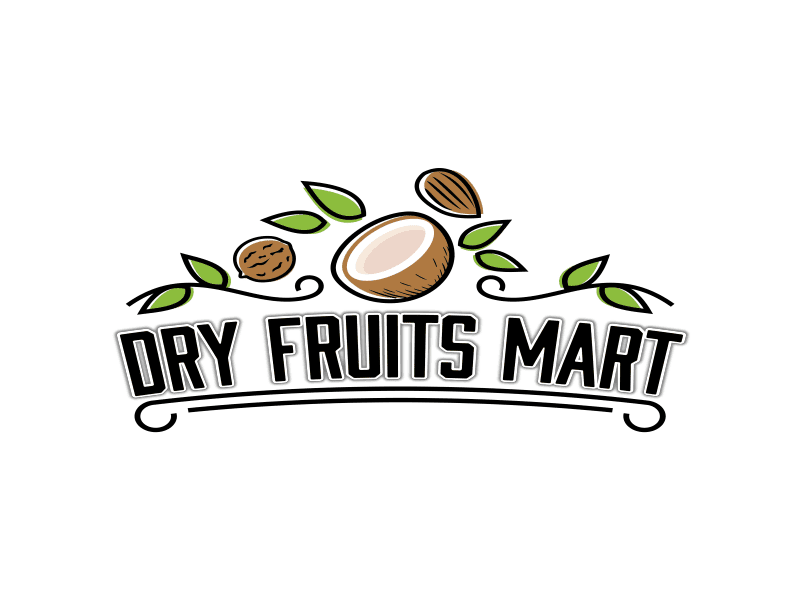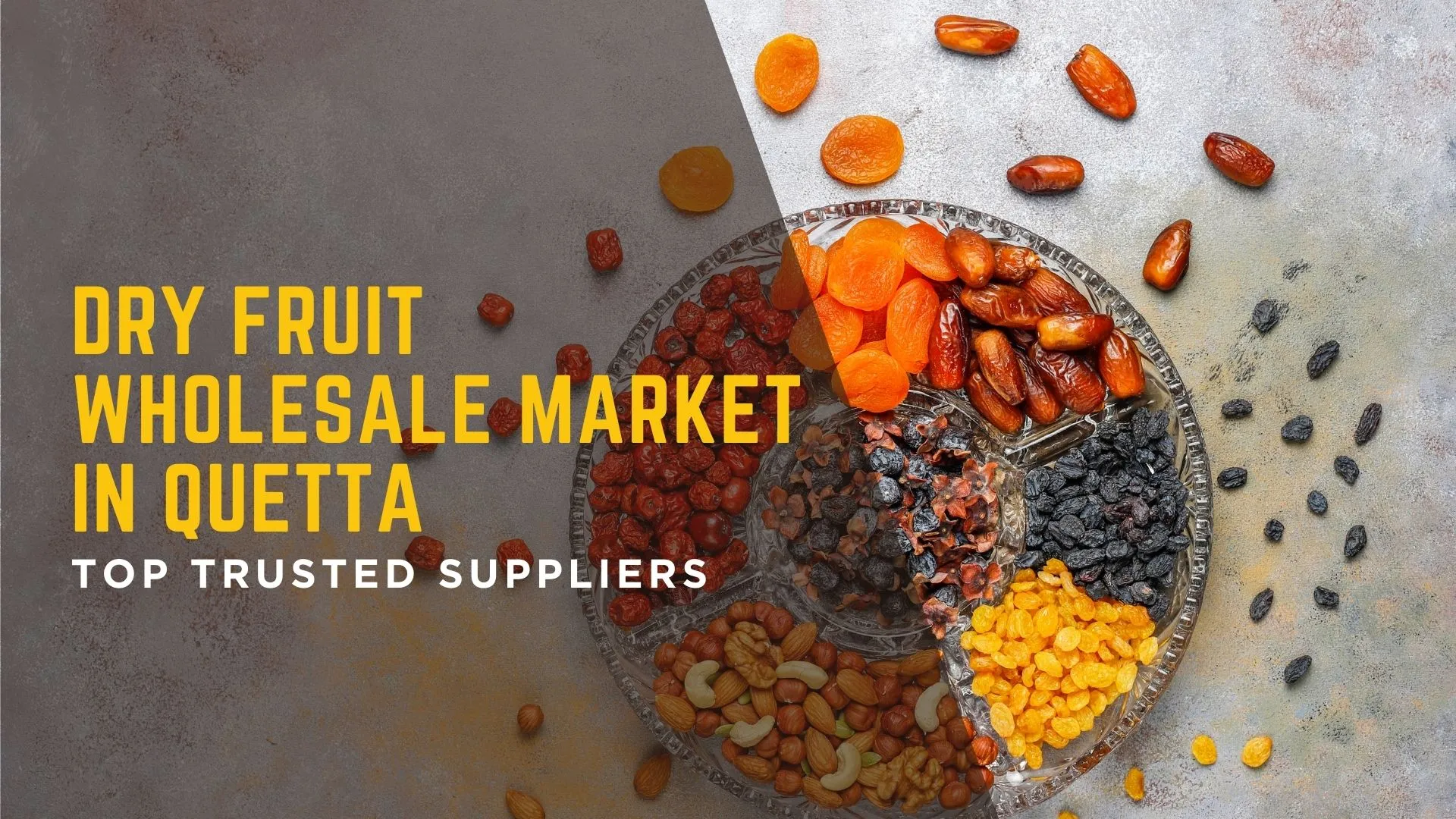The dry fruit wholesale market in Quetta stands as one of the biggest market of dry fruits in Pakistan, stretching almost 1 kilometer from Meezan Chowk. When I first visited this expansive marketplace, I was immediately impressed by the sheer variety of offerings available to both wholesale buyers and casual shoppers.
Quetta dry fruit options are incredibly diverse, featuring everything from almonds (badam), walnuts (akhrot), and apricots (khubani) to dried berries, mangoes, and pineapples. Additionally, you’ll find imported varieties from around the world alongside local specialties. What makes this the best dry fruit wholesale market in Quetta is not just its impressive selection but also its reasonable pricing compared to other markets across Pakistan.
During my exploration, I discovered that this is one of Pakistan’s premier wholesale destinations for dry fruits. Whether you’re a business owner looking to stock up on inventory or simply a dry fruit enthusiast, this market offers something for everyone. In this guide, I’ll share everything you need to know about navigating this remarkable marketplace, including its location, layout, and most importantly, the top trusted suppliers worth visiting.
Also Explore “15 Dry Fruits Market Prices in Pakistan: City-by-City Guide 2025“
Location and layout of Quetta dry fruit market
Meezan Chowk forms the heart of Quetta’s bustling dry fruit commercial district. This historic intersection serves as both a cultural landmark and the starting point of the renowned dry fruit wholesale market. Located in the central part of Quetta city, the capital of Balochistan province, this vibrant marketplace extends about 1 kilometer from the chowk itself.
Where is the market located?
Situated in Quetta’s historical center, Meezan Chowk functions as a major intersection where cultural, religious, and commercial activities converge. The area encompasses approximately 123,738 square feet of space, with the dry fruit market stretching outward from this central point. Furthermore, several important landmarks surround the chowk, notably the Quetta Press Club, Municipality Office, and Quetta Railway Station. This prime location makes the market easily accessible to both locals and visitors exploring the city.
How to reach Meezan Chowk
Finding Meezan Chowk is relatively straightforward as it’s a prominent landmark in Quetta. The chowk is located on Shara Liaqat, facing toward Mission Road Cantt. If you’re coming from other areas of the city, Meezan Chowk serves as a popular public transportation hub, with numerous busses and taxis operating from this intersection to other parts of Quetta. For those taking the overland route from Istanbul to New Delhi without passing through Afghanistan, Quetta becomes an essential stop on your journey.
Navigating the market streets
Once at Meezan Chowk, moving through the market requires some planning. Primarily due to the extremely busy nature of the marketplace, parking is virtually non-existent within the market itself. The area experiences heavy traffic with counts showing an average of 600 motorbikes and 380 cars within just one hour at peak times. I strongly recommend parking your vehicle near Meezan Chowk and exploring the market on foot.
Throughout the market area, you’ll find Meezan Market covering 17,000 square feet where traditional vendors operate, alongside approximately 10,000 square feet of space occupied by informal vendors with unregulated stalls. Despite the somewhat disorganized conditions, this arrangement offers visitors the authentic experience of a traditional Pakistani wholesale market.
From Meezan Chowk, the streets branch out toward other notable areas like Liaquat Bazaar, making it an excellent starting point for exploring not just the dry fruit market but surrounding commercial districts as well.
Also Explore “Dry Fruit Price in Rawalpindi: Latest Market Rates (2025)“
Types of Shops and Vendors You’ll Find
Stepping into the bustling corridors of Quetta’s dry fruit market reveals a diverse ecosystem of vendors catering to every type of customer. From massive warehouses to tiny stalls, the market presents an authentic glimpse into Pakistan’s traditional trading practices.
Wholesale shops vs. retail stalls
The market clearly divides into two distinct business models. Wholesale establishments occupy larger spaces, often spanning 500-800 square feet, where bulk buyers can purchase dry fruits at significantly discounted rates. These wholesalers primarily cater to business clients seeking large quantities for resale elsewhere in Pakistan or export abroad.
In contrast, retail stalls typically measure just 100-200 square feet yet display an impressive variety. These smaller vendors target individual shoppers and tourists looking for personal consumption quantities. While retail prices generally run 15-20% higher than wholesale rates, they offer the convenience of smaller purchase quantities and often provide sampling opportunities.
Famous Online Shops Like Dry Fruits Mart
Several establishments have built strong reputations over decades of operation. Dry Fruits Mart stands as one of the market’s anchors, operating since 2020 and known for consistent quality across its extensive product range. Similarly, Baloch Traders has earned recognition for specializing in premium imported varieties while maintaining competitive pricing.
Other noteworthy shops include Quetta Dry Fruit Center, praised for its meticulous grading systems and transparent pricing, alongside Afghan Dry Fruit House, which features unique cross-border varieties not commonly found elsewhere in Pakistan.
Local Vendors and Their Specialties
What makes this market truly special are the local specialists who focus on specific product categories. Certain vendors exclusively sell pine nuts (chilgoza) harvested from Balochistan’s mountainous regions, maintaining direct relationships with harvesters to ensure freshness and quality.
Moreover, apricot specialists offer multiple varieties, from dried whole fruits to kernels and natural oils. These vendors often process their goods on-site, allowing customers to witness traditional preparation methods first hand. Equally impressive are the walnut specialists who differentiate their products based on origin, shell thickness, and kernel characteristics.
Throughout the market, you’ll encounter family businesses passing specialized knowledge through generations, creating an authentic shopping experience that combines commerce with cultural heritage.
Also Explore “7 Best Dry Fruit Shops in Quetta: Local Expert Picks (2025)“
Dry fruit varieties and pricing overview
Quetta’s reputation as a dry fruit hub stems from its extraordinary range of products at various price points. The market reveals a treasure trove of nutritional delicacies that attract buyers from across Pakistan.
Commonly available dry fruits
The market showcases an impressive assortment including almonds, walnuts, cashews nuts (kaju), pistachios, and pine nuts (chilgoza). Indeed, vendors offer multiple varieties of each—with eight different types of almonds and seven varieties of pistachios. Pine nuts command premium prices at an astonishing Rs. 14,000 per kilogram, while dried figs sell for Rs. 4,000 per kilogram.
Imported vs. local products
Imports contribute significantly to market diversity. Afghan almonds (Rs. 2,600/kg), Iranian pistachios (Rs. 3,600/kg), and Indian/Vietnamese cashews (Rs. 2,900/kg) dominate premium segments. Nevertheless, Balochistan’s locally grown products—particularly pistachios, walnuts, and dates from Panjgur—have earned regional distinction for their exceptional flavor.
Price comparison across vendors
Price variations exist throughout the market:
- Pistachios: Rs. 4,000-4,600/kg
- Cashews: Rs. 4,800-4,200/kg
- Almonds: Rs. 4,600-4,600/kg
- Walnuts: Rs. 3,000-3,200/kg
Specialty date (khajoor) varieties show remarkable price diversity, from affordable Muzafati Dates (Khajoor) (Rs. 1500/kg) to premium Madjool Khajoor (Rs. 4,600/kg).
Seasonal price fluctuations
Winter brings substantial price increases—50-100% for many varieties. This occurs naturally as demand rises during colder months when dry fruits help maintain body warmth. Consequently, market trends reveal inflation has pushed prices upward by 50-80% in recent years, affecting consumer purchasing power.
Also Explore “9 Best Dry Fruit Shops in Karachi: Local Expert Picks (2025)“
Top trusted suppliers in Quetta dry fruit market
Selecting the right supplier in the dry fruit wholesale market in Quetta requires careful consideration of several factors.
Criteria for selecting trusted suppliers
Firstly, quality should be your primary concern when selecting vendors. Look for shops that source directly from reputable growers and implement strict quality control standards. Authenticity of products—ensuring they’re free from additives and preservatives—is another crucial factor to consider.
List of 5 reliable vendors
According to local market experts, these vendors consistently deliver exceptional quality:
- Dry Fruits Mart (Online + Quetta Delivery) – Known for premium dry fruits and more
- Quetta Dry Fruit – Offers hybrid shopping model with free shipping on orders above Rs. 8,000
- Al-Naseeb – Popular for their “Premium Dry Fruits at Unbeatable Prices” policy
- Haji Abdullah & Brothers – Established importers/exporters since 1956
- Muslim Dry Fruit – Specializes in preservative-free products
What makes them stand out
These suppliers distinguish themselves through specialized product offerings. For instance, Dry Fruits Mart features an impressive selection of eight premium date varieties, including Sukkri Dates (Rs. 4,000), Ajwa Dates (Rs. 4,200), and Muzafati (Rs. 1500). Haji Abdullah adopts a straightforward pricing approach without unnecessary markups.
Customer service and packaging quality
Reliable suppliers employ state-of-the-art packaging that maintains freshness from harvest until delivery. The best vendors offer airtight packaging that protects products from moisture and contaminants. Regarding customer service, top suppliers provide 24/7 support for inquiries alongside fast, reliable shipping options.
Also Explore: “12 Best Dry Fruit Shops in Multan: Local Favorites of 2025“
Conclusion
Quetta’s dry fruit wholesale market stands as a remarkable destination for both business buyers and casual shoppers alike. Throughout my exploration of this vibrant marketplace, I discovered an impressive array of options ranging from locally produced treasures to exotic imported varieties. The market truly offers something for everyone, whether you seek premium chilgoza pine nuts or affordable date varieties.
Despite the bustling environment and challenging parking situation, the market rewards visitors with authentic experiences and competitive pricing. Most importantly, finding reliable suppliers like Dry Fruits Mart, Quetta Dry Fruit, and Haji Abdullah & Brothers ensures you’ll receive quality products at fair prices.
Also Explore: “Akbari Mandi Dry Fruit: Wholesale Market, Rates & Buying Guide“
For first-time visitors, starting at Meezan Chowk provides the best orientation point before venturing deeper into the market streets. Though prices have increased in recent years due to inflation and seasonal factors, the market still remains more affordable than similar options elsewhere in Pakistan.
My journey through Quetta’s dry fruit market revealed not just a commercial hub but also a cultural treasure where traditional trading practices and specialized knowledge pass from generation to generation. This market undoubtedly deserves its reputation as one of Pakistan’s premier dry fruit destinations. Visitors who take the time to explore its depths will certainly return home with both quality products and memorable experiences.
FAQs
Q1. What are the most popular dry fruits available in Quetta’s wholesale market?
The market offers a wide variety of dry fruits, including almonds, walnuts, cashews, pistachios, pine nuts (chilgoza), dried figs, and various types of dates. You can find both local and imported varieties, with some shops offering up to eight different types of almonds and seven varieties of pistachios.
Q2. How do prices of dry fruits in Quetta compare to other markets in Pakistan?
Quetta’s dry fruit market is known for its competitive pricing compared to other markets across Pakistan. However, prices can vary depending on the type of fruit, season, and whether you’re buying from wholesale or retail vendors. Generally, wholesale prices are 15-20% lower than retail prices.
Q3. Are there any seasonal price fluctuations for dry fruits in Quetta?
Yes, there are significant seasonal price fluctuations. During winter, prices can increase by 50-100% for many varieties as demand rises. This is because dry fruits are traditionally consumed to help maintain body warmth in colder months. Additionally, recent years have seen overall price increases of 50-80% due to inflation.
Q4. What should I look for when choosing a reliable dry fruit supplier in Quetta?
When selecting a trusted supplier, prioritize quality and authenticity of products. Look for vendors who source directly from reputable growers, implement strict quality control standards, and offer preservative-free products. Good packaging that maintains freshness and reliable customer service are also important factors to consider.
Q5. Can you recommend some trusted dry fruit suppliers in Quetta?
Some well-regarded suppliers in Quetta’s dry fruit market include Dry Fruits Mart, known for their premium date collections; Quetta Dry Fruit, which offers a hybrid shopping model; Al-Naseeb, popular for competitive pricing; Haji Abdullah & Brothers, established importers since 1956; and Muslim Dry Fruit, specializing in preservative-free products. These vendors are known for their quality products and reliable service.


